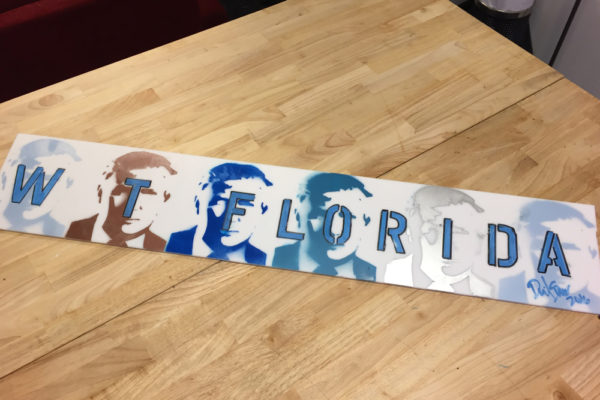Obits
A tragic day…
Many professors — including myself — assign an obit assignment to students where they write about the lives of one of their classmates. Though they find the exercise a bit macabre at first, they soon get into it, imagining their lives as famous journalists, activists or artists — and surrounded by dozens of adoring grandchildren when they die happily at 105.
The point is that an obituary is simply a profile, but one where the subject can’t return phone calls. A news obit — as opposed to a death notice, which is a paid advertisement often paid by a mortuary — chronicles the notable goings on in a person’s life, good and bad. If someone is famous, it’s nearly certain that something controversial, ugly or untoward happened in that life, and a good obit does not shy away from those facts.
Moses Shumow
Of course, this is also why one is not supposed to write about one’s friends, either as an obit or a news story of any kind. It creates a conflict of interest: either you dig deeply into that person’s life, come what may, and risk damaging that friendship, or you compromise the reporting and potentially sugarcoat issues out of squeamishness or fidelity to your friend’s honor. Either way, it’s not good, though if you ask, most non-journos would say it’s beyond weird one would even THINK of writing badly about the dead and extremely off-putting to consider digging into the past of a friend who died.
But there is at least a partial way out: transparency. If you are upfront with your readers about your relationship, then readers can decide for themselves how much to trust your inevitably laudatory words. This was the dilemma I had when writing the obit of my friend and former college, Moses Shumow, who died on an average workday after being hit by a commuter train in Boston. The shock to my colleagues — and to myself — was nearly incalculable, but it was that it was undeniably newsworthy. Within hours of the accident, nearly a dozen stories had been written, and I felt it necessary that the voices of those who knew him at FIU needed to be part of that record.
Fortunately, I was able to write it for Miami New Times, which provided me with a fair amount of freedom to write it as a mix of a reported and first-person piece. In that way, I didn’t need to pretend I was somehow uninvolved in this tragedy, but could still allow the voices of his friend, colleagues and family to have their say in a manner they wouldn’t have had otherwise. Below is an excerpt, but click here for the full piece:
Moses Shumow had the office next to mine at Florida International University. A tenured professor and the driving force behind our digital program, he had a breadth and depth of knowledge about journalism education and FIU politics that was immensely helpful in my transition from an editor at the Los Angeles Times to the occasionally Byzantine world of academia.
Despite the heavy burdens of his workload and the fact he had a desperately ill child, he was rarely without a laugh or his apparently trademarked smile. I often marveled that he took on the struggles of his life with more joy than people with even a tenth of his challenges.
So I was saddened when he announced last spring that he was leaving us to take a job at Emerson College in Boston. It was a huge loss for the school, as he was constantly pushing our students to master the skills they would need to succeed as journalists in this Wild West industry of ours.
And it was a slap-in-the-face shock when I received a note from a long-dormant WhatsApp group of my former students that he died Tuesday after being struck by a train in a Boston suburb. Shumow, age 42, was riding his bicycle in Beverly, Massachusetts when he was hit by a commuter train on a pedestrian cut-through near the station, according to Massachusetts Bay Transportation Authority Transit police. He was taken to a hospital where he later died.
Get updates about upcoming shows and published work
I won’t sell your info. That’s just rude.




